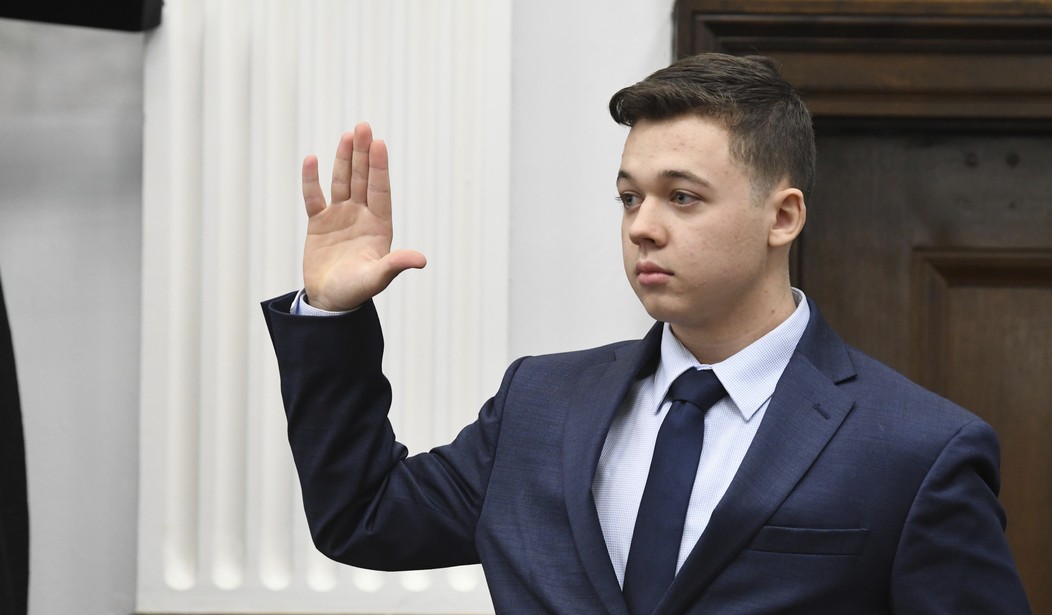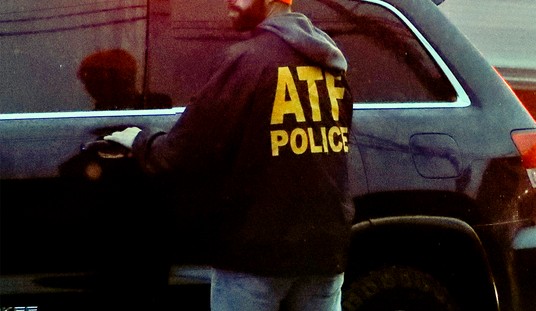Things were going so well for Kyle Rittenhouse in his trial. The conventional wisdom was that the prosecution ended up helping Rittenhouse’s defense team instead of proving beyond a reasonable doubt that Rittenhouse wasn’t acting in self-defense on August 25th last year when he shot three people during the Kenosha, Wisconsin riots. There was even some speculation that the defense would move for a directed verdict or a mistrial after the prosecution rested, which didn’t happen (at least not right after the prosecution rested its case).
And then Kyle Rittenhouse took the stand in his own defense.
Rittenhouse started to break down crying at which point Judge Bruce Schroeder had to call for a ten-minute break. After the brief recess, Rittenhouse testified at first that he thought Rosenbaum threw the chain he had seen earlier because it looked silver in reflecting light. Rittenhouse said Rosenbaum kept running towards him and lunged when Rittenhouse turned and pointed his AR-15.
Rittenhouse said he had to shoot Rosenbaum to defend himself because Rosenbaum was grabbing the AR-15 and he couldn’t run any further away due to cars blocking his path. Rittenhouse explained that he then started to run toward police officers because he didn’t do anything wrong and he felt it was no longer safe by the car lot since a crowd was yelling to “get him!”
Rittenhouse also said that when Anthony Huber hit him with the skateboard after falling down, he felt the AR-15 being pulled away from him so he shot Huber. Rittenhouse added he lowered the AR-15 when he saw Gaige Grosskreutz put his hands in the air. As Rittenhouse explained, he only shot Grosskreutz when he advanced towards him with a handgun pointed at his head. Rittenhouse added that what Grosskreutz said about Rittenhouse manually racking his rifle was not true. Video taken on the night of the shooting also does not support Grosskreutz’s claim.
In pretrial hearings, Binger said he wanted to ask Rittenhouse if he was going to testify about an incident where he was watching a store being looted and commented he wished he had the AR-15 with him so he could shoot the looters. Instead, Rittenhouse called 9-1-1. [Kenosha County Circuit Court Judge Bruce ] Schroeder ruled Binger could not ask Rittenhouse about that incident.
Despite the ruling, Binger started to ask about the incident which prompted an objection from Rittenhouse’s defense team. Binger also started to ask a line of questions to probe Rittenhouse’s right to remain silent after the August 25 shooting.
The jury was quickly escorted out of the room and Schroeder erupted.
“I was astonished when you began your examination by commenting on the defendant’s post-arrest silence,” Schroeder shouted. “That’s basic law. It’s been basic law in this country for 40 or 50 years … I don’t know what you’re up to.”
Mark Richards, the lead defense attorney, said Binger knew better than to ask those questions and said if he does something like that again, they will file for a mistrial with prejudice. After the lunch break, the defense team officially filed for a mistrial with prejudice.
The judge didn’t immediately rule on the motion, which allowed Bingham to continue his cross examination, and he made the most of it, pressing Rittenhouse in an almost second-by-second recounting of the events of August 25th. Rittenhouse held his own for the most part, but Bingham was able to use his questioning to make the case that Rittenhouse shouldn’t have been in Kenosha that night, shouldn’t have been on the streets of Kenosha that evening, shouldn’t have had a gun that night, shouldn’t have left the car lot where he was standing guard, and apparently, shouldn’t have shot Joseph Rosenbaum as the angry man lunged at him after earlier threatening to kill him if he found him alone.
One of the things that Bingham repeatedly brought up was the fact that Rittenhouse was carrying an AR-15 that night. A big, scary, black gun that, according to the ADA, apparently meant that a guy with a handgun posed no threat at all to Rittenhouse. Yep, that was actually the prosecution’s assertion at one point; why would Rittenhouse feel threatened by a guy with a handgun since Rittenhouse held a rifle in his hands?
I’m still mystified about the strategy of putting Kyle Rittenhouse on the stand, but Bingham didn’t land any knockout blows during his cross-examination, which is what I think he needed to do in order to win a guilty verdict. I don’t think that Rittenhouse particularly helped his case by testifying, but I don’t think he did any real damage to his defense either. Of course, I’m not on the jury, and it will likely be sometime next week before we learn what they have to say about the charges against the teen.








